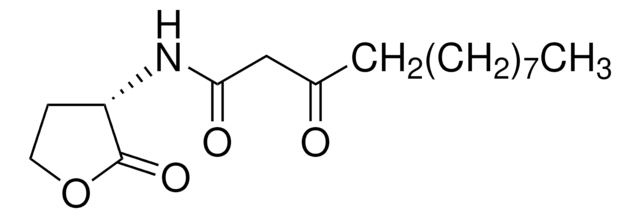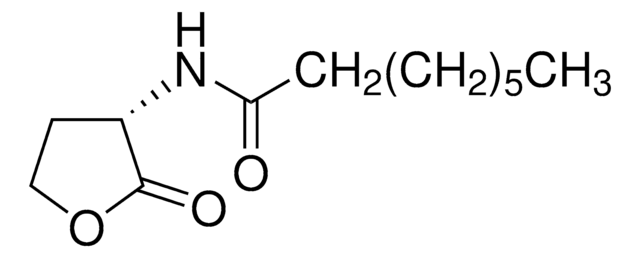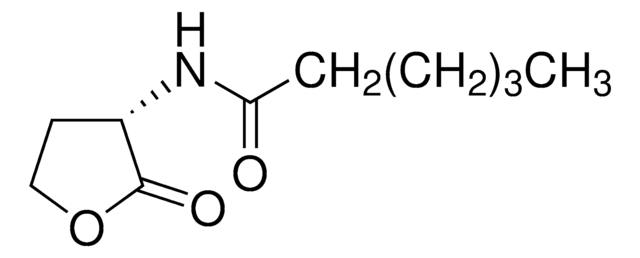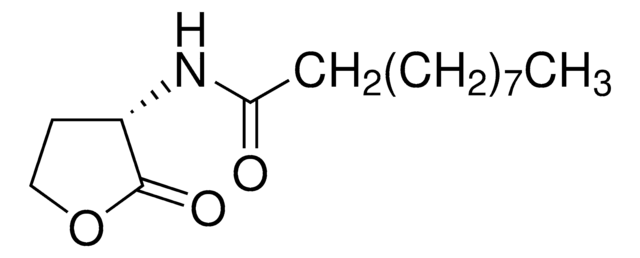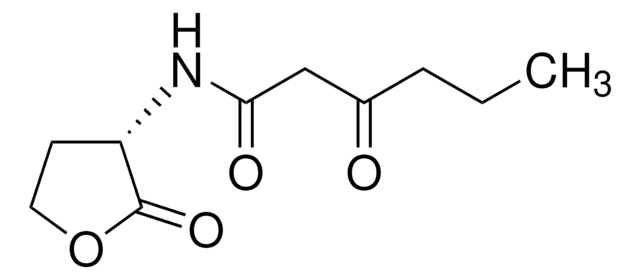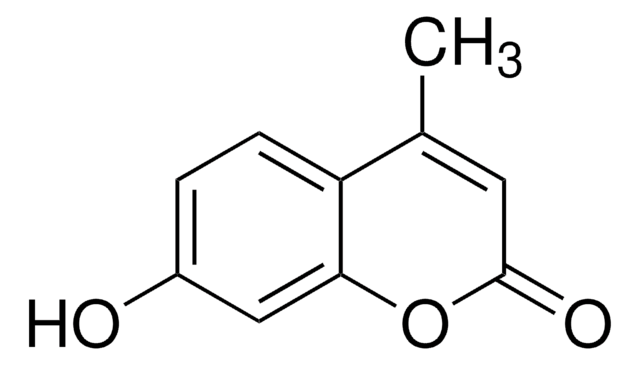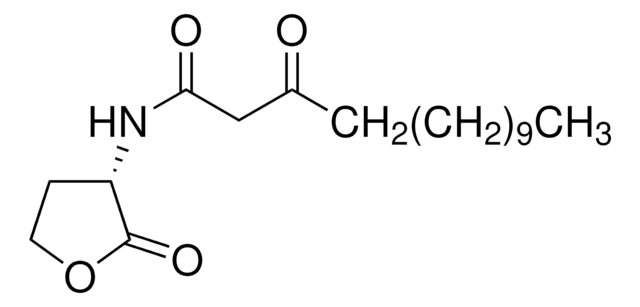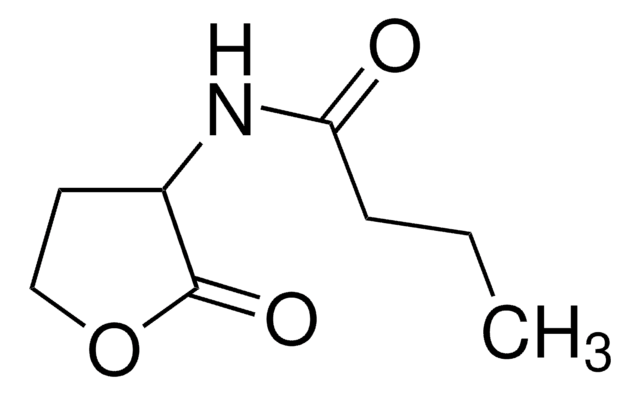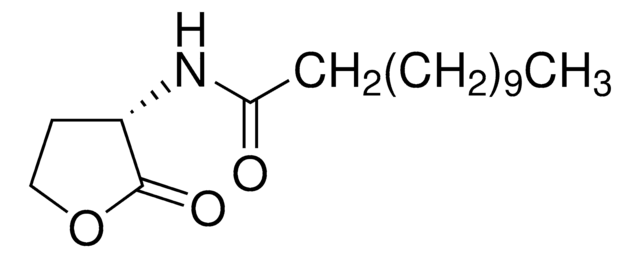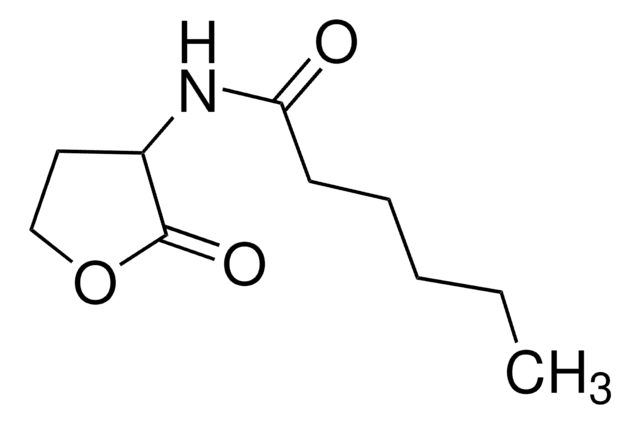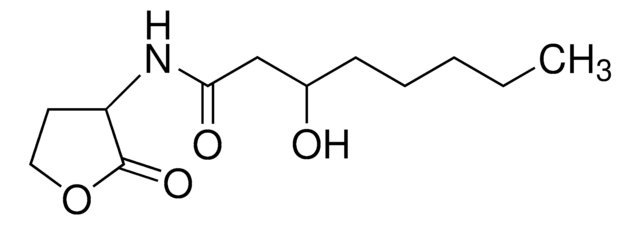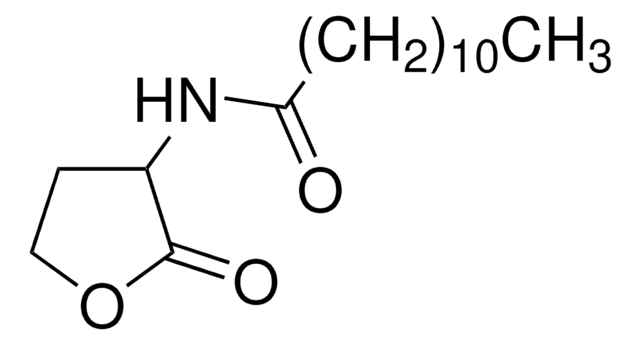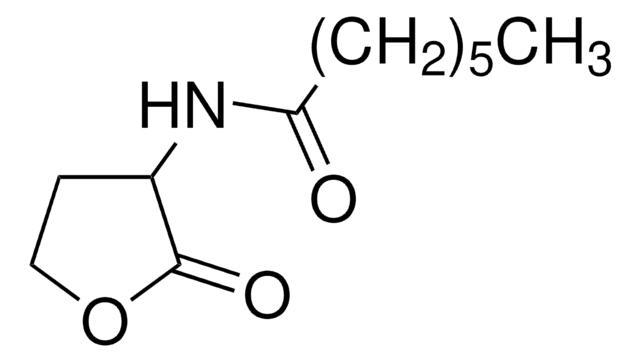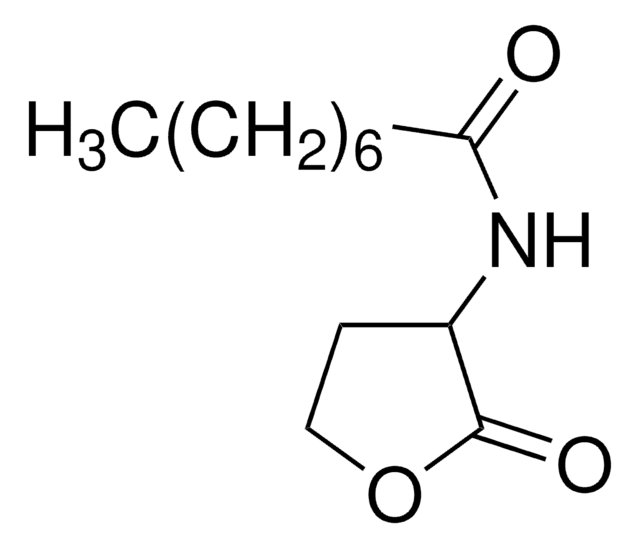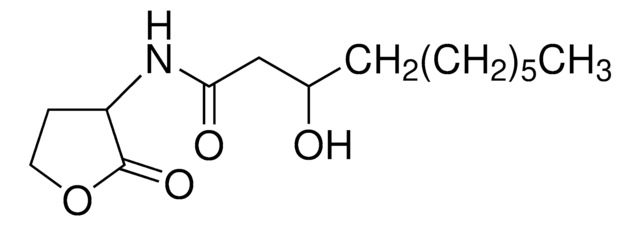O1764
N-(3-Oxooctanoyl)-L-homoserine lactone
≥97% (HPLC), white, powder
Sinónimos:
3-oxo-C8-HSL, 3OC8-HSL, N-(β-Ketooctanoyl)-L-homoserine
About This Item
Productos recomendados
Análisis
≥97% (HPLC)
formulario
powder
mol peso
241.28
técnicas
protein expression: suitable
color
white
solubilidad
chloroform: 50 mg/mL, clear, colorless
Condiciones de envío
wet ice
temp. de almacenamiento
−20°C
cadena SMILES
CCCCCC(=O)CC(=O)N[C@H]1CCOC1=O
InChI
1S/C12H19NO4/c1-2-3-4-5-9(14)8-11(15)13-10-6-7-17-12(10)16/h10H,2-8H2,1H3,(H,13,15)/t10-/m0/s1
Clave InChI
FXCMGCFNLNFLSH-JTQLQIEISA-N
Descripción general
It is a signaling molecule that is produced by Gram negative bacteria.
Aplicación
- to study the effects of pH, temperature, and salinity on extracellular polymeric substances (EPS) of Pseudomonas aeruginosa biofilm.
- as an AHL inducer to activate the quorum sensing pathways in Synechococcus elongatus.
Acciones bioquímicas o fisiológicas
también adquirido normalmente con este producto
Código de clase de almacenamiento
11 - Combustible Solids
Clase de riesgo para el agua (WGK)
WGK 3
Punto de inflamabilidad (°F)
Not applicable
Punto de inflamabilidad (°C)
Not applicable
Equipo de protección personal
Eyeshields, Gloves, type N95 (US)
Certificados de análisis (COA)
Busque Certificados de análisis (COA) introduciendo el número de lote del producto. Los números de lote se encuentran en la etiqueta del producto después de las palabras «Lot» o «Batch»
¿Ya tiene este producto?
Encuentre la documentación para los productos que ha comprado recientemente en la Biblioteca de documentos.
Los clientes también vieron
Substances of Pseudomonasaeruginosa Biofilm with
N-(3-Oxooxtanoyl)-L-Homoserine Lactone Addition
Nuestro equipo de científicos tiene experiencia en todas las áreas de investigación: Ciencias de la vida, Ciencia de los materiales, Síntesis química, Cromatografía, Analítica y muchas otras.
Póngase en contacto con el Servicio técnico